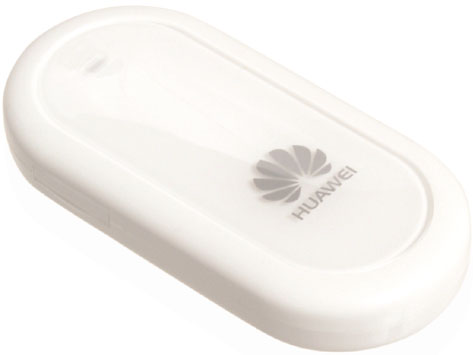I haven’t seen this before, so I thought I’d documment how to generate a server TLS certificate using CACert. This can be useful if you are running a mail or web server and easily (and cost free) want to support TLS for integrity/confidentiality. I just re-installed my secondary mail server, and tested this recipe with Exim4 with Debian. See below for a step-by-step howto.
Continue reading CACert and GnuTLS
OpenWRT 8.09 plus Huawei E220
Now that OpenWRT 8.09 has been released, I finally took the time to write down my notes on how to use it together with the Huawei E220 dongle, which supports 3G/HSDPA.

The writeup on how to do this is long, so I put it at a separate page:
http://josefsson.org/openwrt/dongle.html
Redmine on Debian Lenny Using Lighttpd
The GnuTLS trac installation is in a poor shape. To fix that, I looked into alternatives and found Redmine. Redmine appears to do most things that I liked in Trac (wiki, roadmap and issue tracking) plus it supports more than one project (would come in handy for my other projects) and has built-in git support. I would like to see better spam handling and OpenID support, but it is good enough for our purposes now, and there are similar concerns with trac.
However, getting it up and running with lighttpd on a modern debian lenny installation was not trivial, and I needed some help from #redmine (thanks stbuehler). After finally getting it up and running, I made a copy of the machine using rsync and rsnapshot, so I could re-create a working configuration if I get stuck, and then re-installed the virtual machine.
The notes below are the steps required to set up Redmine using Lighttpd and MySQL on a Debian Lenny. I’m posting this to help others searching for the error messages I got, and to help my own memory in case I need to re-install the server sometime.
Continue reading Redmine on Debian Lenny Using Lighttpd
FSCONS / Nordic Free Software Award Nomination
The Free Software & Culture conference FSCONS is held in Gothenburg October 24-26th. Having been there and given talks last year, I can recommend it for anyway interested in what’s going on the free software and culture world.
I’m happy and proud to notice that I have been nominated for their award, for my work on security packages for the GNU project. Too bad I cannot make it to the conference this year.
Cyclomatic Code Complexity
Inspired by my own OWASP Sweden chapter talk last night, I learned more about Cyclomatic Code Complexity and did some practical experiments.
Cyclomatic Code Complexity was described by Thomas J. McCabe in 1976. Read the Wikipedia entry for the entire story, but in short it is a measure of C code complexity relevent to code testing.
I learned about its practical use from GNUPDF‘s nice cyclomatic report. They use a tool called PMCCABE which happen to be packaged in Debian, so it was easy for me to test it.
I produced reports for some of my projects and some other popular tools, and put them online at:
http://josefsson.org/cyclo/.
Hopefully this will help me and others to find where the complex code is located. Knowing where to look is the first step towards improving things.
In my projects (e.g., gnutls, gnu sasl, shishi, libidn) I use gnulib for portability modules and maintainer scripts. Thus it felt natural to integrate GNUPDF’s custom scripts into a gnulib module. I’m discussing the module now.